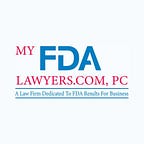FDA Attorney: Navigating Regulatory Compliance in Pharmaceuticals
Understanding the Role of an FDA Attorney
What Does an FDA Attorney Do?
FDA attorneys specialize in regulatory matters concerning the FDA and its regulations governing the pharmaceutical industry. They provide legal counsel and assistance to pharmaceutical companies in areas such as:
- Regulatory Compliance: Ensuring that products meet FDA standards and regulations throughout the development, manufacturing, and marketing processes.
- Labeling and Advertising: Reviewing and approving product labels, packaging, and promotional materials to ensure compliance with FDA regulations.
- Clinical Trials: Assisting in the design, conduct, and reporting of clinical trials in accordance with FDA requirements.
- Enforcement Actions: Representing clients in FDA enforcement actions, such as warning letters, inspections, and recalls.
Why You Need an FDA Attorney
In the highly regulated pharmaceutical industry, even minor compliance errors can lead to significant consequences, including product recalls, fines, and damage to reputation. An FDA Attorney is crucial for:
- Risk Mitigation: Identifying and mitigating potential compliance risks before they escalate into costly legal issues.
- Legal Strategy: Developing effective legal strategies to address FDA inquiries, inspections, or enforcement actions.
- Expert Guidance: Providing expert guidance on complex FDA regulations and helping companies stay up-to-date with changes in the regulatory landscape.
- Protecting Brand Reputation: Safeguarding the company’s reputation by ensuring compliance with FDA regulations and responding swiftly to any compliance issues.
Key Responsibilities of an FDA Attorney
Navigating the Regulatory Approval Process
One of the primary responsibilities of an FDA attorney is guiding pharmaceutical companies through the regulatory approval process for new drugs, biologics, and medical devices. This process involves:
- Preparation and Submission: Assisting in the preparation and submission of applications, including New Drug Applications (NDAs), Biologics License Applications (BLAs), and 510(k) premarket notifications.
- Review and Communication: Interfacing with the FDA during the review process, responding to inquiries, and providing additional information as needed.
- Approval and Post-Market Compliance: Facilitating approval decisions and ensuring ongoing compliance with post-market requirements, such as adverse event reporting and manufacturing changes.
Ensuring Compliance with Labeling and Advertising Regulations
FDA regulations governing product labeling and advertising are extensive and require meticulous attention to detail. An FDA attorney helps companies:
- Review and Approval: Review product labeling, packaging, and advertising materials to ensure compliance with FDA requirements for accuracy, completeness, and fair balance.
- Promotional Activities: Advise on permissible promotional activities, including direct-to-consumer advertising, social media marketing, and promotional labeling.
Managing Clinical Trial Compliance
Clinical trials are a critical component of the drug development process, and compliance with FDA regulations is essential to ensure the validity and integrity of trial data. An FDA attorney assists companies by:
- Designing Protocols: Collaborating with clinical teams to develop study protocols that meet FDA standards for safety, efficacy, and data integrity.
- Informed Consent: Ensuring that informed consent procedures comply with FDA regulations and ethical standards.
- Data Reporting: Overseeing the collection, analysis, and reporting of clinical trial data in accordance with FDA requirements.
The Importance of Proactive Compliance
In the highly regulated pharmaceutical industry, proactive compliance is key to avoiding costly legal and regulatory issues. An FDA attorney plays a crucial role in helping companies establish and maintain robust compliance programs by:
- Conducting Audits and Assessments: Conducting regular audits and assessments of internal processes and procedures to identify areas of non-compliance and implement corrective actions.
- Employee Training: Providing training and education to employees on FDA regulations, policies, and procedures to ensure a culture of compliance throughout the organization.
- Monitoring Regulatory Changes: Keeping abreast of changes in FDA regulations and guidance documents and advising companies on how these changes may impact their operations.
Conclusion
In the highly regulated world of pharmaceuticals, compliance with FDA regulations is non-negotiable. Having a knowledgeable and experienced FDA attorney on your team can make all the difference in navigating the complex regulatory landscape, ensuring compliance, and protecting your company’s interests. From regulatory approvals to advertising compliance and clinical trials, an FDA Detentions provides invaluable guidance and support every step of the way.
Remember, in the fast-paced and ever-evolving world of pharmaceuticals, proactive compliance is not just a best practice — it’s a business imperative.
